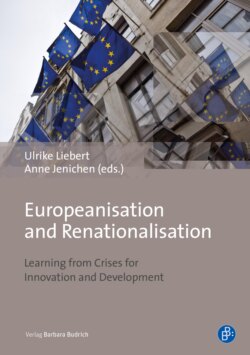Читать книгу Europeanisation and Renationalisation - Группа авторов - Страница 21
На сайте Литреса книга снята с продажи.
5. Populism and identity politics in the 2017 election campaign
ОглавлениеThe fragmentation of the ideological space in Dutch politics was also clearly apparent in the terms on which parties waged the election campaign towards [44] the 2017 elections. While socio-economic (left-right) differences certainly played a role, parties invoked a wide range of themes to distinguish themselves from the others. Notably, for instance the Socialist Party put the issue of health care in the spotlight and campaigned for rolling back the previous privatization policies in the sector. Similarly, the Greens highlighted climate change-related issues.
Nevertheless, the key issue that overshadowed all others in the 2017 election campaign was the issue of Dutch identity, what it involves and how to demarcate ‘good’ Dutch citizens from the others. Obviously, this is an issue that reflects above all Geert Wilders’ agenda, in which the Dutch identity is systematically opposed to the ‘others’ of Muslim immigrants and European integration. Wilders’ prominence on the Dutch political scene and his high standing in the polls forced most of the other parties to clearly position themselves on the identity issue as well. Most notably, Prime Minister Mark Rutte decided early in the campaign to put out an advertisement in the main Dutch newspapers with a letter to all Dutchmen. Key message of this letter was a call to behave “normally”. Notably, this call was not directed against any one misbehaving, but particularly pointed the finger at migrants. Thus, Rutte wrote: “We feel a growing unease when people abuse our freedom to mess things up around here, while they have actually come to our country because of that freedom. People who do not want to adjust, and who reject our habits and values. […] Behave normally or go away” (Rutte 2017). Clearly, with this message, Rutte sought to appeal directly to voters who potentially would be attracted by Wilders’ rhetoric.
But Rutte was not alone in adopting the identity issue. Christian-Democrat leader Sybrand Buma also adopted a harsh tone on migration and went public arguing that Dutch school children should learn the national anthem and sing it while standing. In turn, newly elected Labour leader Lodewijk Asscher gave his own spin to the identity focus by claiming his own kind of “progressive patriotism”. Thus, Wilders was extremely successful in ensuring that identity politics, and the question who belongs to the ‘right’ Dutch people and who does not, became centre stage in the campaign.
The identity focus of the campaign was reinforced when in the week before the elections the Turkish government decided to send Turkish ministers to the Netherlands to hold campaign meetings for the upcoming constitutional referendum in Turkey. While there have been some candidates of Dutch parties who have made a particular effort to get the vote of Dutch expats, the public campaigning of Turkish AK politicians on Dutch soil came as direct provocation in the midst of the Dutch election campaign. The government and Prime Minister Rutte in particular were clear that this could not be tolerated and when the Turkish ministers did not withdraw voluntarily, they were eventually physically prevented from meeting in the Netherlands.
[45] In the light of the general evolution of Dutch politics, it is important to observe that the identity issue is not just another issue but that it has the potential to become deeply divisive. The reason for this is that the emphasis on particular identities undermines the recognition that modern democratic societies are inherently plural and that politics under those conditions is exactly about creating conditions under which people with competing interests and competing values can nevertheless live peacefully together. In that sense, the identity issue fits perfectly the populist agenda, but it risks undermining the essential ability of political parties to reach out across societal differences.
In one of the first academic reflections of the Dutch 2017 elections, Catherine de Vries (2017) demonstrates that identity-related concerns about European integration, migration and national control in international affairs have indeed come to play a prominent role in Dutch voter decisions. Notably, however, De Vries adds that these new concerns “should not necessarily be understood as a cultural backlash, but rather seem a reflection of increased economic insecurity”. The people who are more likely to adopt, what de Vries calls, “parochial” positions tend to be those with lower levels of education and with structural concerns about making ends meet. While these findings underline that cultural and economic concerns are often difficult to unravel empirically, I would even add disillusionment with the established political order as a third, logically related, feature.
